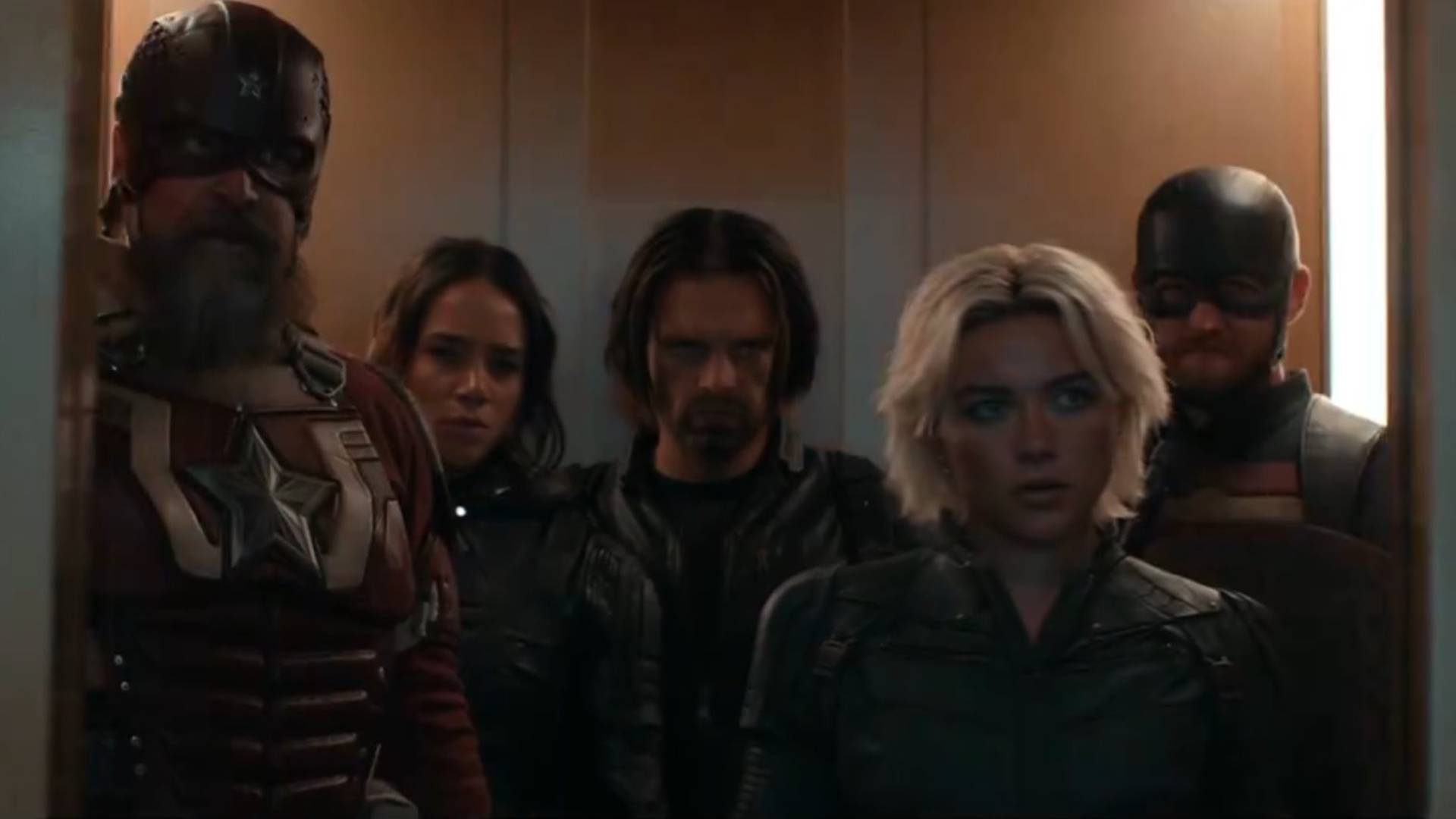
(Image credit: Marvel Studios)
It seems that every Marvel release promises a new direction for the MCU, yet Thunderbolts might be the rare film that genuinely delivers. Under the helm of Jake Schreier, celebrated for his work on the Steven Yeun-led Netflix series Beef, bold choices are made that mostly pay off.
The film’s success largely hinges on Florence Pugh, who returns as Yelena Belova after her initial appearance in the 2021 film Black Widow. As the movie unfolds, Yelena grapples with a lack of direction, entering existential territory (although the guard she’s holding isn’t very sympathetic). She’s executing covert missions for CIA director Valentina Allegra de Fontaine (played by Julia Louis-Dreyfus), yet her heart is not in it, still haunted by the loss of her sister Natasha.
Without emotional support from her ineffectual father figure, Alexei (David Harbour), Yelena takes on one last mission for Val. However, it quickly spirals beyond her initial intentions. In the field, she encounters several other lost antiheroes: John Walker aka US Agent (Wyatt Russell), Ava Starr aka Ghost from Ant-Man and the Wasp, Antonia Dreykov aka Taskmaster (Olga Kurylenko), and Bucky Barnes, now a congressman (Sebastian Stan). Among them also is newcomer Bob (Lewis Pullman), unsure of his own purpose.
Despite suffering from amnesia, Bob soon becomes essential, linking the Thunderbolts together through his superpowered identity. Fighting both personal demons and external threats, Bob provides the key to a fresh and introspective Marvel narrative, with mental health themes taking the forefront over traditional comic origins.
While not pioneering in its attention to such issues, Thunderbolts highlights them meaningfully, delving into the struggles of mental illness without reducing them to mere buzzwords. The film premieres on May 1 in the UK and May 2 in the US, with a runtime of 2 hours and 6 minutes, welcoming audiences to experience its refreshing group dynamics and dialogue reminiscent of the original Guardians of the Galaxy.
The ensemble cast creates a distinct resonance, especially with Russell enjoying a more charismatic role compared to his portrayal in The Falcon and the Winter Soldier. Walker’s interplay with his new team adds depth, although Harbour’s Alexei oftentimes leans too hard on shouting. However, there are heartfelt interactions with Yelena that ground the narrative.
Though Stan, an Oscar-nominated actor, doesn’t command the spotlight, he shines in humorous moments, such as refreshing his vibranium arm in the dishwasher. Meanwhile, Val steps into the limelight beyond her prior cameos in Black Widow and Black Panther: Wakanda Forever. Louis-Dreyfus effortlessly portrays Val, despite occasional script incredulities.
Every bold film encounter a miss or two, and Thunderbolts is no exception. Some storylines are conveniently left unresolved as the film progresses, and the action sequences may not distinctly stand out from other franchise entries. Nevertheless, Pugh’s daring leap from the world’s second-tallest building, a stunt she performed herself, is a visual treat.
Ultimately, Thunderbolts ambitiously strives to convey how individuals cope with past failings, most notably through Yelena and Bob. It doesn’t shy away from analyzing grief, a theme eloquently portrayed by Pugh and Pullman, demonstrating the movie’s intent to resonate deeply rather than superficially.
Benefiting significantly from its distinct narrative isolation within the expansive MCU, Thunderbolts offers a cohesive story that stands independently, despite familiar cameos. This separation allows focus on Yelena’s personal grief over her sister, rather than the broader franchise history. Catch Thunderbolts in UK cinemas on May 1 and US theaters on May 2. For a look at what’s next, check our guide to upcoming Marvel films slated beyond 2025.